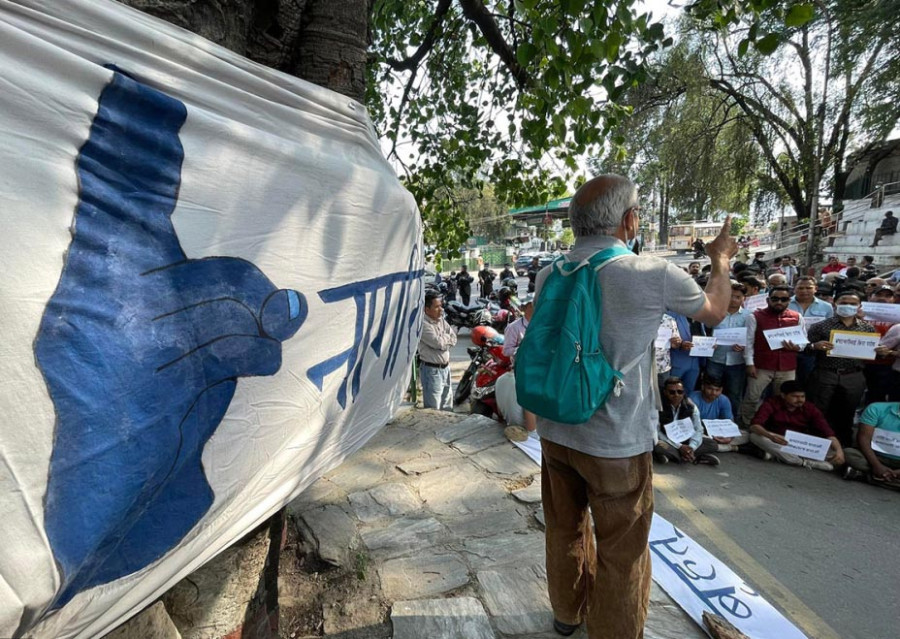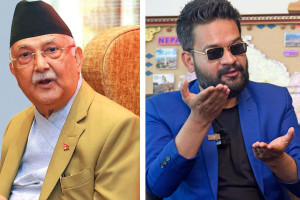Columns
Regaining civic space in Nepal
It involves nurturing new civic actors, not romanticising past movements.
Ajay Das
At a time when civic space in South Asia is visibly shrinking and global headlines warn of it being under threat, Nepal still retains some characteristics of an open society. Yet, as history reminds us, this relatively open civic space cannot be taken for granted, as we have recently seen some worrying trends involving the prohibition and enforced restrictions on any form of peaceful protests and rallies. Opportunities for civic engagement have been restrained not just in physical space but also in digital platform. The government has weaponised the Electronic Transaction Act to crack down on freedom of expression.
The story doesn’t end here. The government is manipulating the Social Media Bill to muzzle the voices in the digital civic space. Journalists are threatened with legal action; digital media platforms have been forced to take down content; and civil society organisations are excluded from public policymaking discussions. This shows civic spaces are under pressure and shrinking, where freedom of expression is no longer guaranteed.
Civil society organisations and civic actors—including journalists, lawyers, academics and community leaders—have played a vital role in the political movements to democratise the country’s federal restructuring. Nevertheless, the recent public discourse tells a different story. Civil society appears politicised, fragmented, discredited and increasingly silent. Its moral authority is in question, and its space—both physical and digital—is under siege. Civic actors face subtle threats, making silence the safest choice for them.
With some exceptions, aligning civic actors with partisan interests has hindered democratic transformation and institutional building. The erosion of multi-partiality has not only undermined civil society’s moral authority and public credibility but also given the state a pretext to dismiss civic voices. There is a dire need for civic actors to reaffirm their independence, demonstrate a non-partisan stance and express a clear commitment to issues of public interest. As civic space increasingly comes under pressure, the role of collective civic action for civic openness becomes even more critical. However, civil society is less able to act collectively. They are divided on partisan lines, and civic actors have varied understanding of civil society and civic space. The question is: How can we reimagine civil society’s role and regain the civic space?
The challenges facing civil society are compounded by the declining public trust in civic actors. Once seen as torchbearers of change, the civic actors, media, professional groups, NGOs and community-based organisations have been put in a single basket and infamously portrayed with negative public narratives. Legacy media have been labelled as a so-called 12-brothers cartel and accused of serving the interests of elite groups. Likewise, the activism by civic actors is often dismissed as dallarkheti (dollar farming); academics are criticised for complicity or silence; and lawyers are accused of defending the powerful instead of standing up for the marginalised.
There is a grain of truth in it. As with any sector, a few rogues distorted public perception, raising questions on civil society’s integrity and genuine efforts and undermining the credibility of those working with sincerity and purpose. Unsubstantiated stories about civic activism fuel negative narratives that have significantly damaged the credibility of civic actors. The loss of public trust thus opened the door for unchecked authoritarian tendencies by the state that the country is currently experiencing.
Political scientist Francis Fukuyama famously argued that strong and vibrant civil societies emerge from deep reservoirs of social capital, i.e., trust, networks and shared values. Nepal’s civil society is struggling today because we have lost these vital sources of social capital. The erosion of trust, fragmentation of networks and diminishing shared values have left the civic actors struggling to effectively engage citizens and hold power to account.
The general public is disillusioned with the current state of affairs and is desperately looking for a change. But why doesn’t change come? Are we doomed to face years of mis-governance until the 2027 election? A popular saying sums up the current stagnation: “Why doesn’t change come? Because the poor often lack the courage to demand change; the middle class is too busy; and the rich see no need for it.”
Whether we like it or not, this harsh reality reflects the apathy, fear and submission that shape our social landscape and deepen the gap in democratic participation. In his book How Change Happens, Duncan Green highlights that civil society is an important actor in driving change. Civil society can challenge power structures and hold institutions accountable through networks, advocacy, protests and coalition-building. However, this requires a critical mass of active, engaged citizens, something Nepal’s current civic space lacks. A major factor behind this gap is the widespread discrediting of civic actors.
When was the last time a prime minister, minister, party leader, or government official genuinely engaged civil society as a partner in development? Civil society representatives are often excluded from public policymaking. Civic actors are usually absent from consultations on key issues like health, education, agriculture, or employment. These societies outside Kathmandu remain detached, reflecting the historical centralisation of power and resources.
This sidelining of civil society weakens democratic accountability and limits innovation. Unlike rigid bureaucracies or profit-focused markets, civil society is often more agile, responsive and grounded in the needs of the common citizens. Civil society is a crucial force that balances the power of the state and the market. While some civic spaces are expanding through digital innovations and youth-led activism, others are shrinking under the weight of political interference and targeted delegitimisation of civic actors.
To reinvigorate civic space, civic actors such as activists, journalists, academics and lawyers must reflect critically and ruthlessly assess their roles and work to rebuild public trust through ethical practices, transparency and stronger connections with grassroots communities. They must actively counter negative narratives, be independent and reaffirm their indispensable role in a functioning democracy. By regaining moral authority, civic actors can pitch alternative visions on the issues of public interest, hold power to account and speak out boldly for social justice.
Reimagining civil society in Nepal is not about romanticising past movements. It is about nurturing a new generation of civic actors who are deeply connected to local realities, resilient against repression and courageous enough to speak out when silence is no longer an option. This also means leveraging the power of digital civic tools to mobilise communities, amplify voices and challenge authority in innovative ways. The time for quiet introspection is over. Nepal needs a bold, honest and united effort to reclaim civic space before it disappears entirely.




 10.12°C Kathmandu
10.12°C Kathmandu















